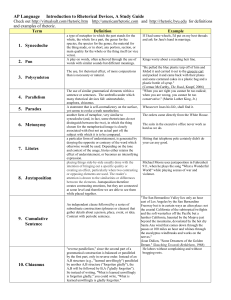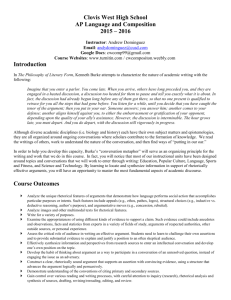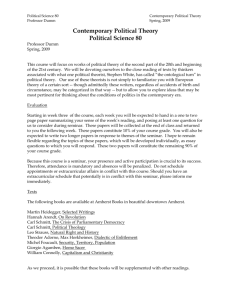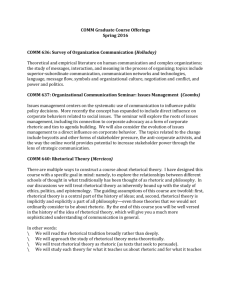COMM 6310 Seminar in Rhetorics of Conscience
advertisement
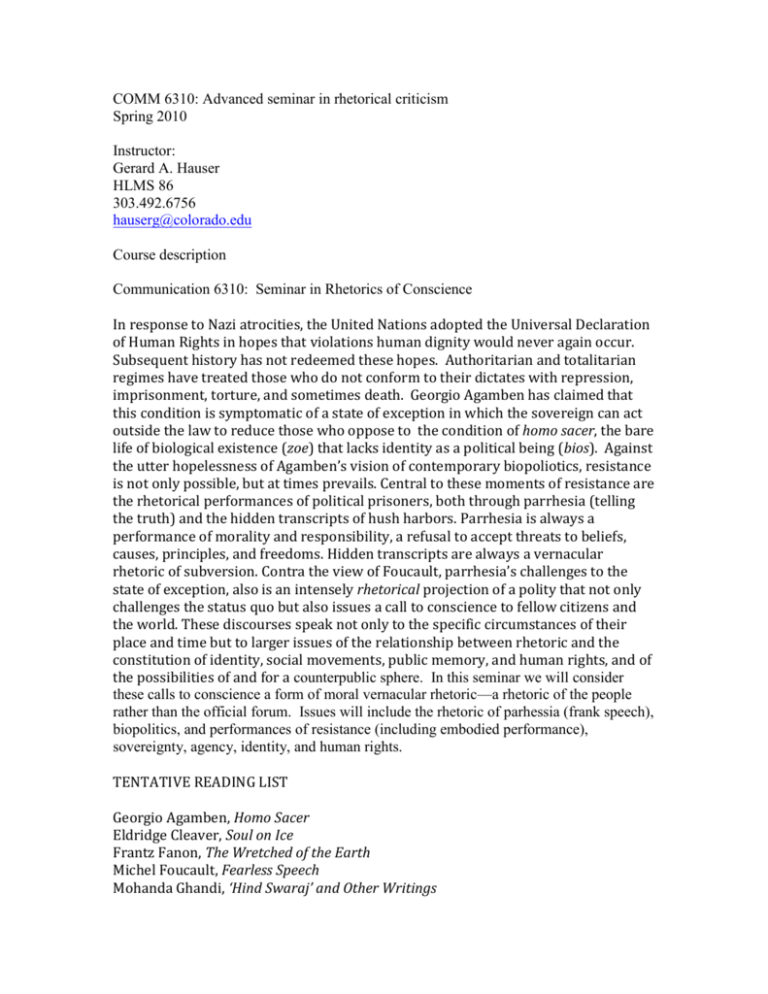
COMM 6310: Advanced seminar in rhetorical criticism Spring 2010 Instructor: Gerard A. Hauser HLMS 86 303.492.6756 hauserg@colorado.edu Course description Communication 6310: Seminar in Rhetorics of Conscience In response to Nazi atrocities, the United Nations adopted the Universal Declaration of Human Rights in hopes that violations human dignity would never again occur. Subsequent history has not redeemed these hopes. Authoritarian and totalitarian regimes have treated those who do not conform to their dictates with repression, imprisonment, torture, and sometimes death. Georgio Agamben has claimed that this condition is symptomatic of a state of exception in which the sovereign can act outside the law to reduce those who oppose to the condition of homo sacer, the bare life of biological existence (zoe) that lacks identity as a political being (bios). Against the utter hopelessness of Agamben’s vision of contemporary biopoliotics, resistance is not only possible, but at times prevails. Central to these moments of resistance are the rhetorical performances of political prisoners, both through parrhesia (telling the truth) and the hidden transcripts of hush harbors. Parrhesia is always a performance of morality and responsibility, a refusal to accept threats to beliefs, causes, principles, and freedoms. Hidden transcripts are always a vernacular rhetoric of subversion. Contra the view of Foucault, parrhesia’s challenges to the state of exception, also is an intensely rhetorical projection of a polity that not only challenges the status quo but also issues a call to conscience to fellow citizens and the world. These discourses speak not only to the specific circumstances of their place and time but to larger issues of the relationship between rhetoric and the constitution of identity, social movements, public memory, and human rights, and of the possibilities of and for a counterpublic sphere. In this seminar we will consider these calls to conscience a form of moral vernacular rhetoric—a rhetoric of the people rather than the official forum. Issues will include the rhetoric of parhessia (frank speech), biopolitics, and performances of resistance (including embodied performance), sovereignty, agency, identity, and human rights. TENTATIVE READING LIST Georgio Agamben, Homo Sacer Eldridge Cleaver, Soul on Ice Frantz Fanon, The Wretched of the Earth Michel Foucault, Fearless Speech Mohanda Ghandi, ‘Hind Swaraj’ and Other Writings Vaclav Havel, Living in Truth Michael Ignatieff, Human Rights as Politics and Idolatry Adam Michnik, Selected letters from prison Czeslaw Milosz, The Captive Mind Irina Ratushinskaya, Grey is the Color of Hope Bobby Sands, Writings from Prison and selected press accounts James Scott, Domination and the Arts of Resistance: Hidden Transcripts Testimonies of prisoners on Robben Island, South Africa Jacobo Timmerman, Prisoner Without a Name, Cell Without a Number Tzvetan Todorov, Facing the Extreme Selected articles, essays, films, letters, and speeches 2







